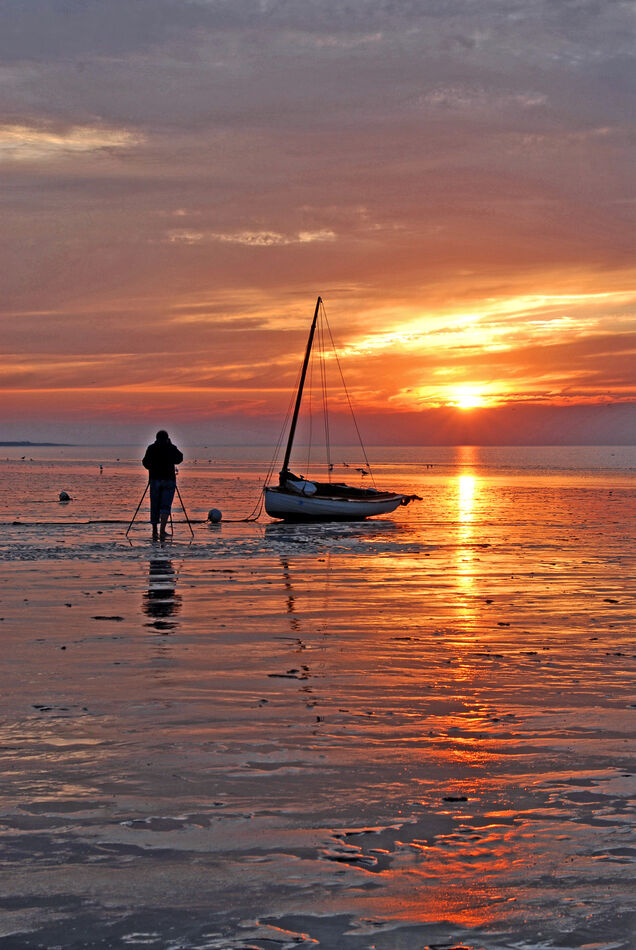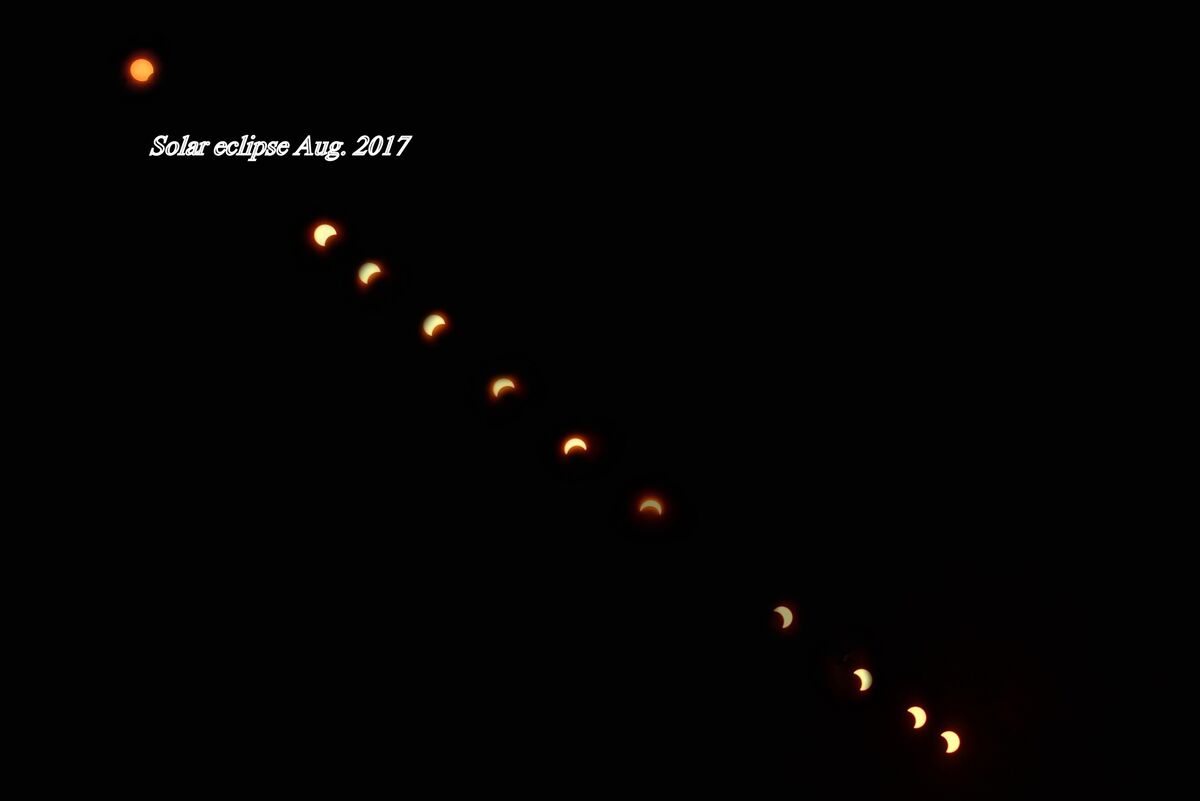Filters for sunsets
Jul 22, 2022 15:21:36 #
Hello Hoggers, I need your expert advice. I have taken a few sunset photos and now been reading that the sun could damgage my 7200 sensor with prolonged use. Should I be using a filter? What kind and which one is a good? What do they cost? I'll be using a Sigma 17-50 and Nikon 70-200. Thanks for any advice.
Jul 22, 2022 15:30:57 #
Interesting.
I've never worried about the sun buggering the sensor, but then I don't shoot sunsets when the sun is still real bright either.
Also, my camera is never left pointing at the sunset for any length of time. Only to take the shot.
If I were to leave the camera on a tripod pointing at the sun, I might consider a cape over the lens while I'm waiting.
But like I said, never a bright sun, as I can normally look at it without hurting my vision.
Yea, bright sun would damage the sensor, just like using a magnifying glass to start a fire.
I've never worried about the sun buggering the sensor, but then I don't shoot sunsets when the sun is still real bright either.
Also, my camera is never left pointing at the sunset for any length of time. Only to take the shot.
If I were to leave the camera on a tripod pointing at the sun, I might consider a cape over the lens while I'm waiting.
But like I said, never a bright sun, as I can normally look at it without hurting my vision.
Yea, bright sun would damage the sensor, just like using a magnifying glass to start a fire.
Jul 22, 2022 15:47:45 #
Royce Moss wrote:
Hello Hoggers, I need your expert advice. I have taken a few sunset photos and now been reading that the sun could damgage my 7200 sensor with prolonged use. Should I be using a filter? What kind and which one is a good? What do they cost? I'll be using a Sigma 17-50 and Nikon 70-200. Thanks for any advice.
Huh? I take sunset photographs almost daily, and the times when the sun is not obscured by clouds, I stop down to F22 and bet beautiful sun rays.
Now, if you focused your camera with a, let's say 200 mm lens, onto the Sun midday, you could cause the lens optics, your camera sensor,
and your eyes to be burned.
These idiots were photographing a solar eclipse pre totality without a filter:
https://www.engadget.com/2017-09-04-behold-the-cameras-destroyed-by-the-solar-eclipse.html
Normal sunsets with a wide angle lens, no.
Jul 22, 2022 15:47:49 #
Jul 22, 2022 15:52:12 #
Hey Longshadow thanks for the quick reply. My situation is about the same as yours.I like to take late sunsets where the sun is just about to set and only point my camera at he sun to take the shot to. I was pretty sure I'd be ok.
Jul 22, 2022 15:55:51 #
Royce Moss wrote:
Hey Longshadow thanks for the quick reply. My situation is about the same as yours.I like to take late sunsets where the sun is just about to set and only point my camera at he sun to take the shot to. I was pretty sure I'd be ok.
I can't see why not.

Jul 22, 2022 16:40:44 #
Strodav
Loc: Houston, Tx
At sunrise and sunset you are looking / shooting through a lot more atmosphere, which helps reduce the energy getting to your camera, so you are OK for normal shutter speeds. The sensor is only exposed to the sun at your selected aperture for the duration of your shutter speed. When using the viewfinder during daylight hours (sun higher in the sky), be careful of your eyes as you are looking at the sun through a magnifying lens at wide open aperture, a mirror and a prism. I would not recommend shooting the sun when higher in the sky in Live View mode.
I usually take a meter reading below the horizon (landscape), then one of the sky to find the difference in stops (usually 2 or 3) then use a gradient filter to balance the sky and landscape. I also bracket +/-2 stops just in case. Of course, the sun is still brighter than a 2 or 3 stop difference, but balancing the sky and landscape seems to give me a better result, at least, easier to handle in post processing. Just another thought if you are concerned. A cpl filter usually cuts the light by 2 stops.
I usually take a meter reading below the horizon (landscape), then one of the sky to find the difference in stops (usually 2 or 3) then use a gradient filter to balance the sky and landscape. I also bracket +/-2 stops just in case. Of course, the sun is still brighter than a 2 or 3 stop difference, but balancing the sky and landscape seems to give me a better result, at least, easier to handle in post processing. Just another thought if you are concerned. A cpl filter usually cuts the light by 2 stops.
Jul 22, 2022 16:42:12 #
therwol
Loc: USA
Royce Moss wrote:
Hello Hoggers, I need your expert advice. I have taken a few sunset photos and now been reading that the sun could damgage my 7200 sensor with prolonged use. Should I be using a filter? What kind and which one is a good? What do they cost? I'll be using a Sigma 17-50 and Nikon 70-200. Thanks for any advice.
This is what I found, and the link to the article follows. Also consider that you have a DSLR, and no light reaches the sensor except during the actual exposure.
"When the sun is very close to the horizon its light has to travel through a thicker layer of air than when the sun is overhead. This attenuates the radiation so the light is not nearly as bright, and you can point the camera directly at the sun. (By the time the sun is more than about five diameters above the horizon you risk damaging the sensor if it’s exposed to full sunlight.)"
https://www.photoreview.com.au/tips/shooting/photographing-sunrise-and-sunset/
Jul 22, 2022 16:51:35 #
wingclui44
Loc: CT USA
Royce Moss wrote:
Hello Hoggers, I need your expert advice. I have taken a few sunset photos and now been reading that the sun could damgage my 7200 sensor with prolonged use. Should I be using a filter? What kind and which one is a good? What do they cost? I'll be using a Sigma 17-50 and Nikon 70-200. Thanks for any advice.
I took some Sun set images without any filter, I just wait for the right moment of the Sun when it reached the position that it's intensity was low, and I set the low ISO; aperture at f11, slow shutter speed on tripod.
I also took the Sun at mid day with Mylar Solar filter, I took some Solar eclipse pictures.
Jul 22, 2022 18:46:31 #
rgrenaderphoto wrote:
Huh? I take sunset photographs almost daily, and ... (show quote)
Decent general advice except that youve got the danger of FL exactly backwards. To burn your shutter (or sensor) use an ultra wide, wide open, focused to infinity.
Think about how to use a glass to ignite fire. The tiny concentrated super hot dot of the suns image does the trick.
Jul 23, 2022 00:12:55 #
Orphoto
Loc: Oregon
Royce, I've been taking sunrise and sunset pictures for years. Never a hint of damage to the equipment. Given that, I would not suggest any filters for this situation. Some advocate for split neutral density filters to even out the contrast range, but I do fine with the wide dynamic range in Nikon sensors. Note that NDs are not sunglasses for the sensor.
Jul 23, 2022 07:55:13 #
Orphoto wrote:
... Note that NDs are not sunglasses for the sensor.
Why not?
NDs reduce the amount of light hitting the sensor.
Sunglasses (not the polarized type) reduce the amount of light hitting your retina (the sensor).
One can use an ND and a polarizer on a camera.
Now the camera has polarized sunglasses.
Well, singular, the camera only has one "eye".
Jul 23, 2022 08:01:34 #
I have never used a filter to take photos of a sunset. If used, whichever it could be, consider that flare could show its ugly face in the images.
Simply said, shoot the sunset when the sun is pretty low in the sky, no filter. Consider also shooting when the sun disappears in the horizon and the beautiful colors of afterglow appear. Look also in the opposite direction because many times the colors are simply awesome.
This image was made in the Smokey Mountains National Park in late October. I waited till the sun was below the horizon and I was rewarded with beautiful colors.
Simply said, shoot the sunset when the sun is pretty low in the sky, no filter. Consider also shooting when the sun disappears in the horizon and the beautiful colors of afterglow appear. Look also in the opposite direction because many times the colors are simply awesome.
This image was made in the Smokey Mountains National Park in late October. I waited till the sun was below the horizon and I was rewarded with beautiful colors.
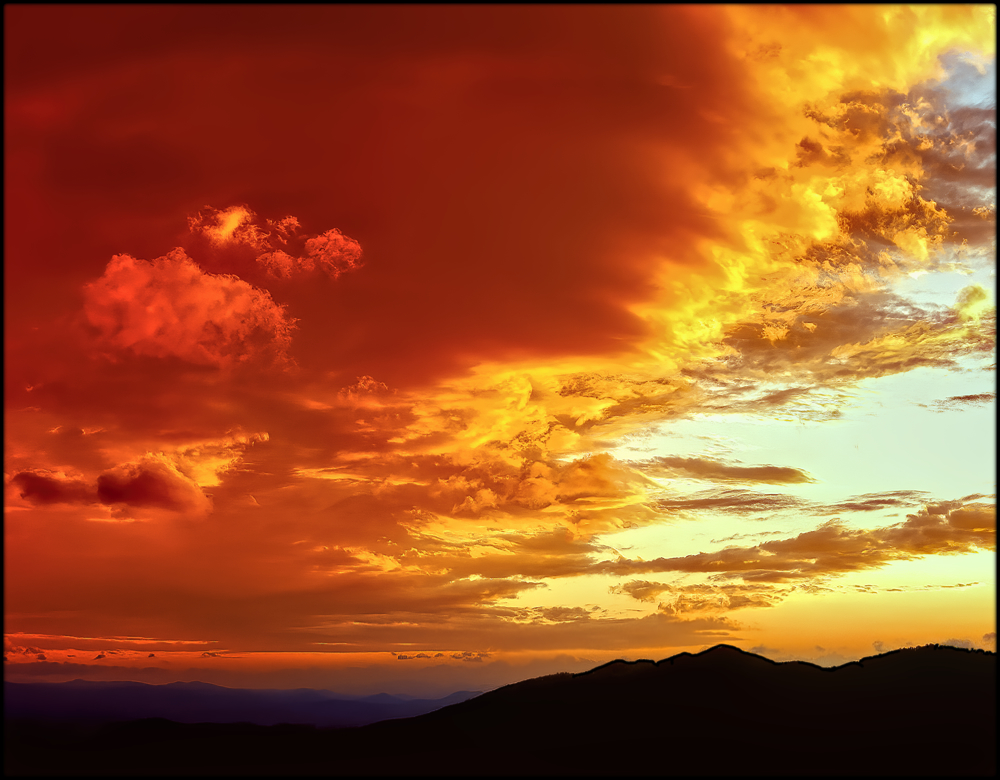
Jul 23, 2022 11:32:14 #
mwsilvers
Loc: Central New Jersey
Royce Moss wrote:
Hello Hoggers, I need your expert advice. I have taken a few sunset photos and now been reading that the sun could damgage my 7200 sensor with prolonged use. Should I be using a filter? What kind and which one is a good? What do they cost? I'll be using a Sigma 17-50 and Nikon 70-200. Thanks for any advice.
The easy rule of thumb is if you can look at the sunset with your eyes then your camera will be fine. Try staring at a bright midday sun for a while and you will damage your eyes much more quickly than you will damage your camera's sensor. But when the sun is low in the sky at sunset your eyes, and your camera, will both be fine.
Jul 23, 2022 12:42:11 #
amfoto1
Loc: San Jose, Calif. USA
Royce Moss wrote:
Hello Hoggers, I need your expert advice. I have taken a few sunset photos and now been reading that the sun could damgage my 7200 sensor with prolonged use. Should I be using a filter? What kind and which one is a good? What do they cost? I'll be using a Sigma 17-50 and Nikon 70-200. Thanks for any advice.
Direct shots of a sunrise or sunset are very brief and WILL NOT damage your camera's sensor.
NO FILTER should be used when directly photographing sunrises or sunsets. ANY FILTER will cause increased flare problems in images.
No filter...

C-Pol filter (high quality B+W multi-coated)...
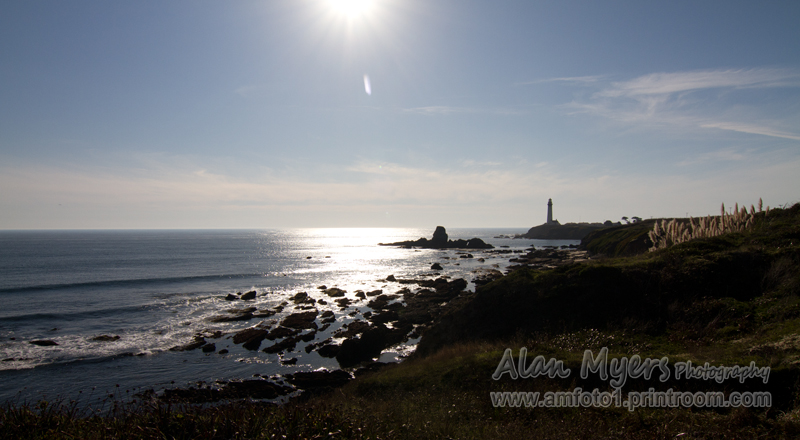
Above image shows overall veiling flare, de-saturation of colors, as well as ghost flare artifacts and chromatic aberration (shown in the enlarged details below)...
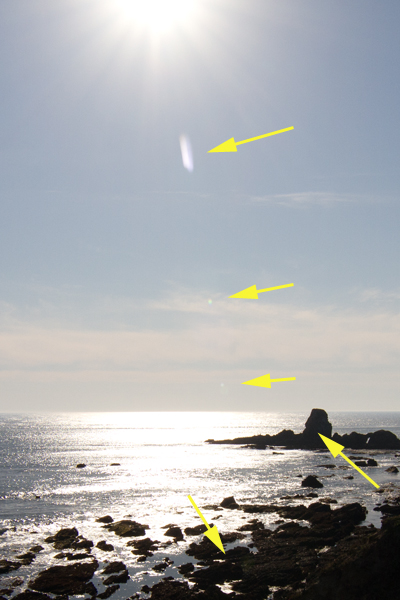

Actually, the above wasn't as bad as I've seen in some other images and was expecting in this image. This speaks well for the lens and filter that were used. Still, there was a lot of room for improvement with Photoshop, as shown below. A lot of that post-processing work could have been avoided simply by NOT using a filter (and doing a better job with the exposure)...
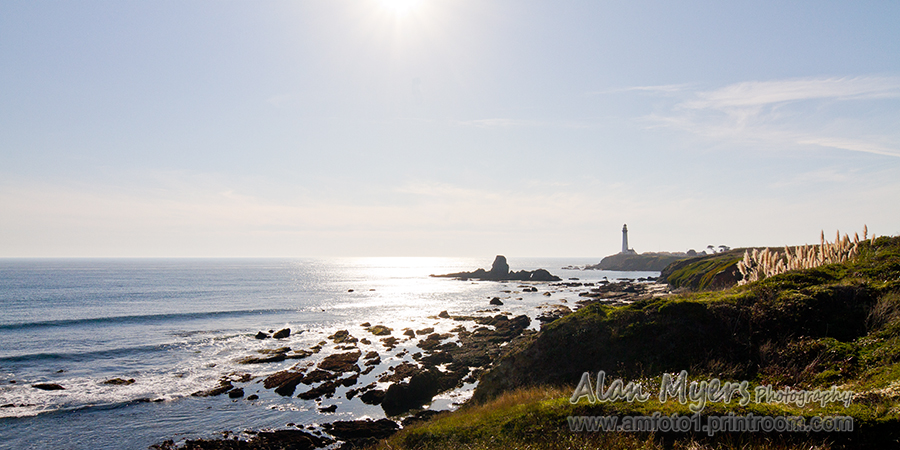
AN IMPORTANT EXCEPTION...
One time you DO need a filter is when photographing a solar eclipse. There are special filters especially for that purpose. They're essentially 16-stop neutral density filters. More info: https://www.bhphotovideo.com/explora/photography/tips-and-solutions/how-photograph-solar-eclipse
If you want to reply, then register here. Registration is free and your account is created instantly, so you can post right away.


